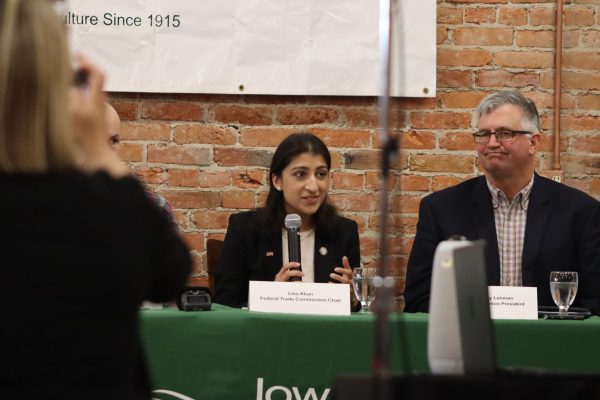Bitter cold calls for preparation before heading outside to class
January 14, 2014
It was the worst cold in Iowa since 1996 last week with wind chills as low as minus 45 degrees Fahrenheit. Schools were closed and experts warned to stay inside. Most of the students in Ames were well prepared, though.
“I didn’t have any problems, I simply stayed inside most of the time,” said Wade Wanner, sophomore in agronomy.
Wanner said that luckily, he didn’t have anything urgent to do, but if classes had been in session on Monday, he would have gone.
“I would have made sure though that I have the thickest coat and gloves possible,” Wanner said.
Bailee Webb, sophomore in civil engineering, said that she had never experienced a cold like this in her entire life.
“On Monday I actually had to move from Oak Elm to Wilson and my car wouldn’t start at all, so I had to call help to jumpstart my car,” Webb said.
According to William Gallus, professor of geological and atmospheric sciences, the temperatures of last week came very close to setting the record for the coldest daytime high temperatures ever.
“We were lucky that it was a fairly quick blast of cold air coming from the arctic that didn’t last too long,” Gallus said. “This kind of cold can be life threatening if you come unprepared.”
While ISU students were still on Winter Break last week, faculty and staff mostly showed up on Monday.
“My building on campus was freezing and my hands were like ice, so it had been really hard to work,” Gallus said. “At one point I was typing with my gloves on.”
Gallus said that luckily, the cold was well-predicted, so students, faculty and staff had plenty of time to prepare.
“On Monday, ISU did something for employees that I didn’t see before: They didn’t charge for parking at certain spots on campus, so that people could park closer to their offices.”
Ironically enough, research indicates that the freezing temperatures were, to a large extent, caused by global warming, said William Gutowski, professor in geological and atmospheric sciences.
“This will be interesting to talk about with my meteorology students,” Gutowski said. “In fact, the issue that global warming is tied to this is something that I wanted to bring up anyway.”
Callie Danielson, senior in mechanical engineering said that the cold caught her completely off guard.
“I’m from Texas, so I was home all winter break with 50 up to 60 degrees Fahrenheit and then I come here, my car is frozen, my face is frozen. I was lucky that I didn’t catch any frost bites.”
Danielson said that this is her third winter in Ames and also the worst.
“The first two winters kind of eased me into the climate conditions of Ames, but I still wasn’t prepared for this one.”
Celeste Estrella, senior in supply chain management had to be on the road for six hours on Monday.
“For the first three hours, the road was really bad because the snow that was already on the ground kept pulling on the car, so I couldn’t see where I was going,” Estrella said. “At some parts, I was going like 15 miles per hour tops.”
Gutowski said it is likely that this type of cold might return next winter, so it is necessary to be adequately prepared for it.
“Try to stay home as much as possible and if you do have to go out, then make sure that you’re covered all over and have almost no skin exposed.”
Students should also consider keeping their gas tanks fairly full because it’s less likely that the gas will freeze.
“Be cautious about where you’re going and where you’re parking your car, because the battery might die and you’re stuck somewhere where you can’t get help that easily,” Gutowski said.
















